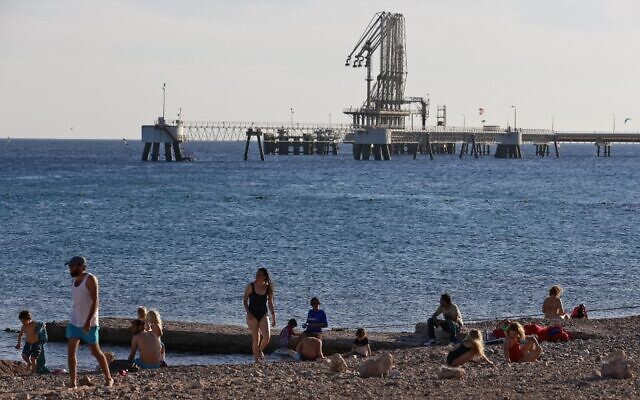Source The Times Of Israel
Decision is a win for environmental and civil society groups; a blow to the cabinet, which asked for a five year-extension for companies that once did business with the shah’s Iran
Sue Surkes is The Times of Israel’s environment reporter
Media www.rajawalisiber.com – The Knesset Foreign Affairs and Defense Committee on Tuesday refused to approve a cabinet request to extend secrecy regulations for a controversial state-owned oil infrastructure conglomerate for another five years, instead agreeing to a one-year extension only.
On Monday, Ze’ev Elkin (New Hope) and Yesh Atid’s Meir Cohen and Orna Barbivai spoke against the five-year request, prompting the committee to set up a subcommittee to meet on Tuesday to hold further discussions behind closed doors.
The subcommittee approved an extension of the regulations for one year.
The decision represents a victory for environmental and civil society groups and individuals who submitted more than 300 objections to a draft proposal for the five-year extension of secrecy.
According to a Justice Ministry document presented to the cabinet, opponents noted the Europe Asia Pipeline Company’s poor pollution record and charged that the confidentiality was too broad, preventing any oversight of the company’s activities.
They also quoted officials from the EAPC and the Government Companies Authority who favored lifting the secrecy requirement.

The Europe Asia Pipeline Company — formerly known as the Eilat Ashkelon Pipeline Company — is the best-known of three state companies established by Israel decades ago in a secret partnership with the shah’s Iran.
Until the 1979 Islamic Revolution and the severing of bilateral ties, Israel quietly picked up Iranian oil in Eilat on the Red Sea and transported it overland to Ashkelon on the Mediterranean, from where it could be shipped to Europe.
It was also used by Israel for internal purposes.
The regulations ban the publication of information about the EAPC or any of the three companies associated with the original Israel-Iran deal — the Eilat Ashkelon Pipeline Company, the Eilat Corporation SA, and Trans Asiatic Oil, Ltd. Each fulfilled a different part of the agreement.
The prohibited information includes the identity of shareholders, details about oil deals, company worth, and management issues.
The few subjects that can be made public include the environment, planning and building, business registration, safety measures, permits, licenses, and orders given by state bodies, supervision and enforcement carried out by bodies such as the Environmental Protection Ministry and the Israel Nature and Parks Authority, and violations and malfunctions.

The EAPC has raised the ire of a long list of organizations and individuals over what they see as a shoddy environmental record.
The company is at loggerheads with the Environmental Protection Ministry over the latter’s refusal to allow it to implement a deal with a consortium of Israeli and United Arab Emirates businessmen. The deal would see the company transporting Gulf oil from Eilat to Ashkelon, but the ministry has rejected the firm’s environmental risk surveys as inadequate.
